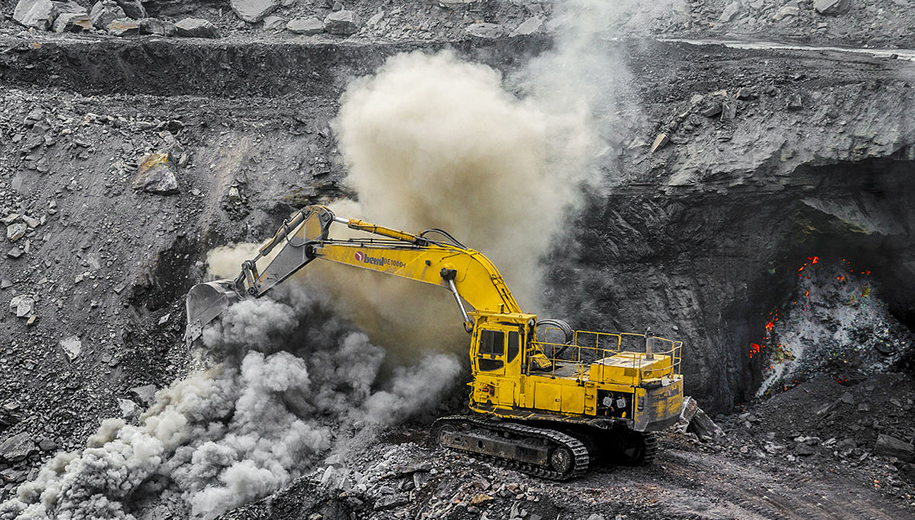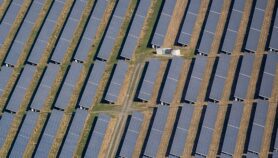15/09/20
India’s pro-business environmental law challenged

By: Ranjit Devraj
Send to a friend
The details you provide on this page will not be used to send unsolicited email, and will not be sold to a 3rd party. See privacy policy.
[NEW DELHI] India’s Karnataka High Court blocked on Monday the country’s environment ministry from publishing a draft notification seeking to drastically change the Environment Impact Assessment (EIA) regime, a move seen as a reprieve against a plan to improve the ‘ease of business’ at the cost of the environment.
In extending its restraining order on 7 September, the court argued that sufficient publicity had not been provided by the Ministry of Environment and Climate Change to stakeholders to examine the drastic changes being proposed to the existing EIA regime and record objections and suggestions by the public.
“Whatever the court decides, the levels of public protest have been unprecedented”
Manju Menon, Centre for Policy Research
"Prima facie it appears to us that the right of the citizens of raising objections to the draft notification has been taken away. Therefore, we grant limited interim relief,” the court ruled on a petition filed by the non-profit Bangalore Environment Trust.
India’s pro-business policies are said to be responsible for the country slipping 27 places in the Environmental Performance Index (EPI) since 2016 and ranking this year near the bottom at 168 in a list of 180 countries. The EPI supplements the environmental targets of the UN’s Millennium Development Goals.
Business-friendly policies are evident in the opening up coal mining to the private sector in June when 17 billion tonnes of coal reserves located in the thickly forested areas of central India were put on the auction block. "What sort of commitment [to global warming] is this that coal blocks in very dense forest areas are being opened up for mining? It is a triple disaster," said former environment minister Jairam Ramesh in an open letter to Prakash Javadekar, the present holder of the portfolio.
The Draft EIA Notification 2020 has run afoul of the court for another reason — the notification was issued only in the Hindi and English languages and was therefore unintelligible to most Indians. Only about 40 per cent of India’s 1.3 billion people are native Hindi speakers while barely 10 per cent is conversant with English.
"The approach of the respondents suggests that perhaps those who don't understand Hindi and English languages need not file comments or objections to the notification,” the court observed.
The deadline for filing objections to the notification was originally set by the ministry on 11 August. But the court observed that the notification was announced on 23 March, a day ahead of a two-month national lockdown ordered to contain the COVID-19 pandemic, limiting opportunities for public response.
“No one can say how long the Karnataka High Court can keep the notification pending though it will automatically lapse 725 days after issue,” says Manju Menon, senior fellow at Centre for Policy Research, a leading public policy think tank. “Whatever the court decides, the levels of public protest have been unprecedented.”
The environment ministry has reported receiving 1.7 million emails and letters from environmentalists, scientists and civil society groups demanding the scrapping of the notification, and instead replacing it with EIA laws that are tighter than the existing one.
Prominent among the protests is an open letter, written by a group of 500 scientists and researchers attached to some 30 institutions, that says the draft notification encourages projects to commence operations without prior clearance and gives them opportunities to get violations regularised by paying fines.
“The undermining of environmental safeguards by non-compliant and unmonitored industries and practices has often led to environmental disasters. including overwhelming loss of biodiversity, human lives and livelihood,” the letter says, citing a deadly gas leak at the port city of Visakhapatnam in May as an example.
The Visakhapatnam gas leak on 7 May killed 13 persons and seriously injured hundreds of others after toxic styrene leaked out of a storage tank owned by South Korea’s LG company, which appeared to have bypassed environmental clearances.
“Overall, we have come to the conclusion that the draft notification, in its current form, is likely to seriously threaten our country’s ecological and environmental security,” the letter said.
“While the environment minister describes the public protests as premature the government’s thinking is clear,” says Menon. “Violators of environmental clearances are to be regularised and projects can start operations or expand while the government promises to manage impacts through monitoring.”
“The fact is both EIA approval rates and non-compliance levels are close to 100 per cent,” says Menon. “The environment ministry’s website shows that over 15,000 projects have been granted EIA approvals since 1994, along with conditions to protect the environment. But government audits show that non-compliance of these conditions was upwards of 90 per cent with no improvement in monitoring.”
This piece was produced by SciDev.Net’s Asia & Pacific desk.













